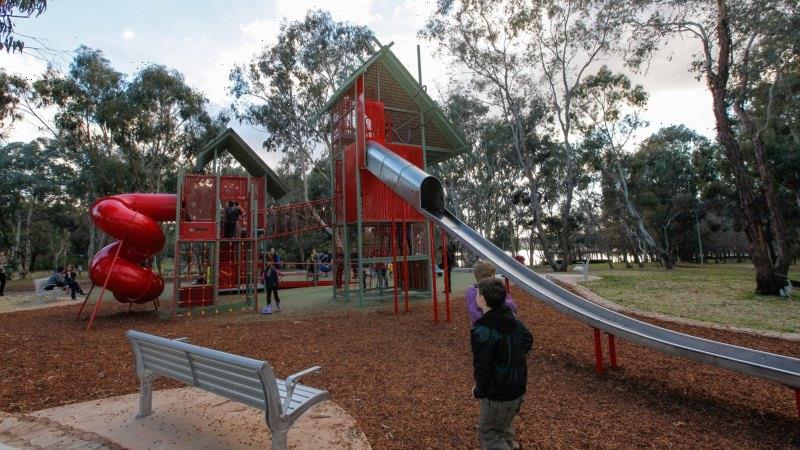For our free coronavirus pandemic coverage, learn more here.
Last week after a particularly intense day of homeschooling I took my kids to the local playground in the afternoon. It was a warm day, with spring in full bloom, and a lot of other parents it seemed had decided to bring their children to the playground as well. As kids chased each other and parents exchanged snippets of conversation, a lone older woman brusquely walked into the enclosed area, stood around and took a bunch of photos on her phone before leaving.
It was quite a startling sight to behold and, for a while, I wasn’t sure of what she was doing. It was only after she left that I realised she was taking photos of people congregating, some perhaps standing too close for her liking. I could not come up with any benign reason for her to take these photos other than to use them as evidence of what she considered to be people doing the wrong thing. And let me remind you, aside from a short period in Blacktown, NSW has not had COVID restrictions on playgrounds in this year’s lockdown.
After weeks in lockdown we don’t need to police children at play.Credit:Katherine Griffiths
Before we went into lockdown, it would not have occurred to me that people would take photos of strangers in a park or in a line for coffee, so they could put them on social media to criticise them. Or that the media would partake in such shaming. Now these actions have become commonplace. Only a couple of days ago a man in my neighbourhood Facebook group took a photo of some children playing in the park and captioned it “What pandemic?“. His post was an invitation for members of the group to join in to condemn children who have spent months unable to attend school or see their friends, who are suffering high rates of mental illness because they aren’t able to do what comes naturally to many of them – and that is to be able to socialise. Thankfully, before the pile on could begin, an admin deleted the post.
I don’t necessarily blame the woman in the playground or even the man posting on the Facebook group and the many others like them. These people are after all, acting in accordance with the demands of our own police minister, who only a month ago asked members of the public to contact the police if they saw illegal activities taking place under lockdown restrictions.
But what is destroyed along the way? The more we dob or shame people in a public manner, the more it seems to me that we erode trust. And ultimately, it is trust that fosters relationships, both personally and, on a wider scale, as a community.
Can we still trust our neighbours or even our friends if we believe they would throw us under the bus (or call the police) if they thought our actions contravened lockdown restrictions (without even speaking to us first)? And what will the ramifications of this be in the long term, when we are out of lockdown? Will we continue to treat each other with suspicion, fostering a community-wide sense of mistrust?
All I know is that from this week onwards we are in school holidays. The second term break that parents across Sydney will be spending in lockdown. We still aren’t allowed to go beyond 5 kilometres from our place of residence, so many of us will be turning to our local parks and playgrounds as a place of release. We are tired and weary because this is no longer a sprint, but a marathon, and we are still looking down the barrel of a many more weeks before we are anywhere near being on the other side of this.
So forgive us if our children want to play together, or if we gather (finally now in groups of five) to commiserate and maybe even celebrate. It is easy to take a photo and put it on social media without knowing the whole story of what a person has gone through and is still going through. Rather than doing that, perhaps turn your attention to something else – volunteering, or maybe looking inwards, could meditation help? For dobbing someone in or indeed publicly shaming them is a way to gain control at a time when so much is out of our control. But before you take such an action, consider what are you losing by doing so. The photograph could be just the start of the unpicking of a thread that loosens the entire fabric of what holds our nation together.
The Opinion newsletter is a weekly wrap of views that will challenge, champion and inform your own. Sign up here.
Most Viewed in National
Source: Read Full Article

